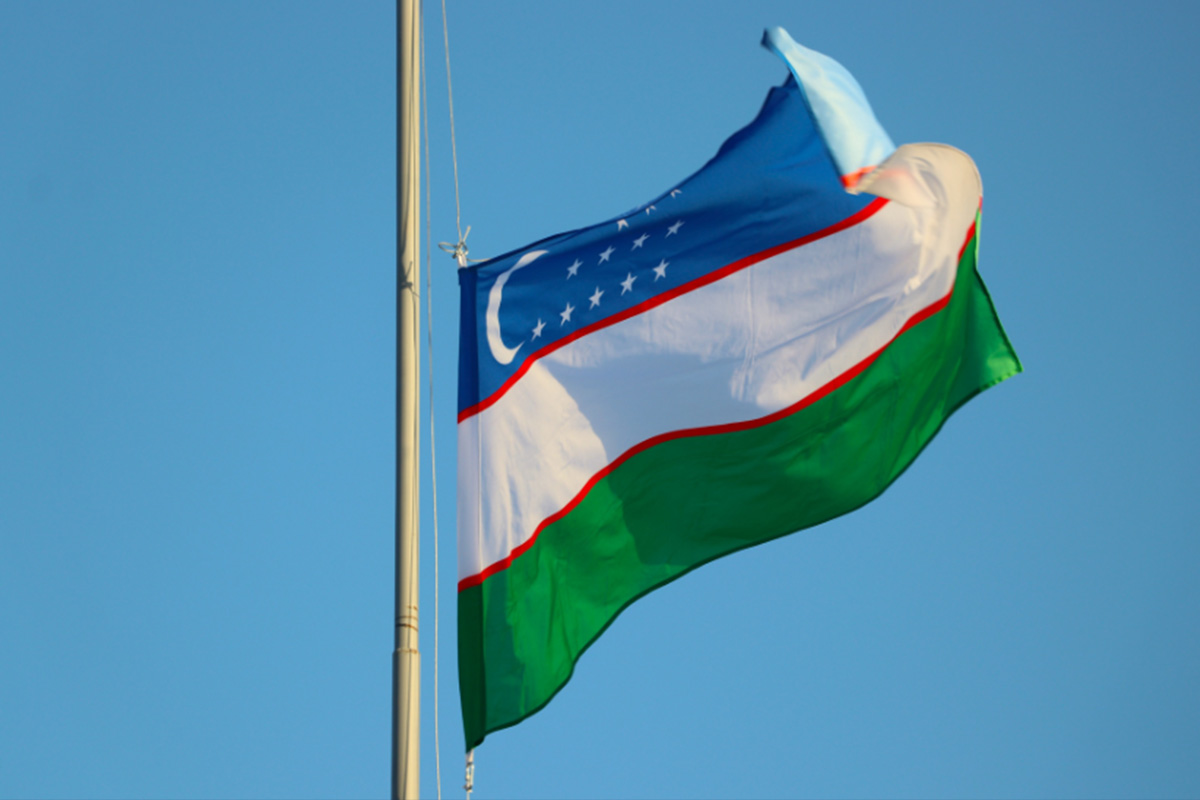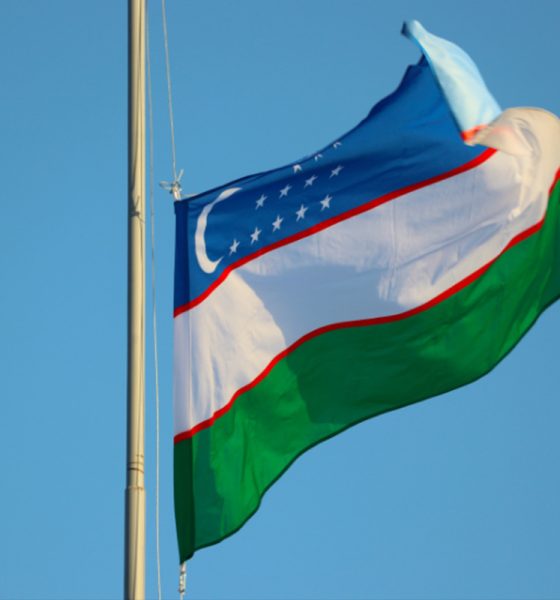

Asia
Uzbekistan Legalises Online Betting and Lotteries
President of Uzbekistan Shavkat Mirziyoyev has signed a decree on April 19 titled “On Measures to Improve the Regulation of the Organization and Conduct of Lotteries and Risk-Based Games in the Republic of Uzbekistan”. The document abolishes the ban starting from January 1, 2025, and introduces a legal framework for the organisation of risk-based games online and betting activities.
The issue of legalising betting activities has been a long-standing topic in Uzbekistan. In December 2019, the president signed a decree to legalise bookmakers, but this decision was revised in April 2022. In April 2023, the head of state instructed the development of a regulatory framework for betting activities.
The National Agency for Advanced Projects (NAAP), the authorised state body for regulating and licensing activities in this sector, provided insights on the necessity of introducing state regulation in the gambling sector in Uzbekistan. The agency emphasised the need to prevent illegal gambling businesses, protect players’ rights and generate additional income for the state budget.
The president’s decree aims to introduce advanced foreign experience and modern technologies in regulating the organisation of risk-based games and lotteries to increase investment attractiveness, tourist potential and attract additional funds to the country.
The measures outlined in the decree include the creation of legal foundations for the legalisation of activities related to risk-based games online, betting activities, and lotteries, implementation of mechanisms to protect citizens’ rights and interests, prevention of gambling addiction and the generation of additional state budget revenue.
Starting from January 1, 2025, a taxation system will be introduced for license holders, where organisers of online games, betting activities and lotteries will pay a turnover tax. This system aims to prevent the concealment of taxable revenue and is expected to generate additional tax revenues for the state budget.
Overall, the implementation of the decree is intended to establish a reliable foundation for the legal regulation of activities related to organising risk-based games online, betting activities and lotteries in Uzbekistan, protect citizens’ interests, combat gambling addiction and provide additional sources of income for the state budget.
The post Uzbekistan Legalises Online Betting and Lotteries appeared first on European Gaming Industry News.
Asia
Indian Gaming Industry Expresses Concern About Proposed Online Gaming Bill

The real money gaming (RMG) industry has been thrown into unprecedented turmoil after the Union Cabinet approved The Promotion and Regulation of Online Gaming Bill, 2025. The proposed legislation seeks to outlaw all forms of pay-to-play online games, covering both games of skill and games of chance. If passed in Parliament, this would effectively ban the operations of legitimate RMG platforms across the country.
Industry stakeholders say the move was taken abruptly and without dialogue. “There was absolutely no consultation with the companies that have built this sector,” one executive said, adding that the decision violates multiple constitutional safeguards and will almost certainly face a legal challenge.
The industry’s pushback comes at a delicate moment. Only last week, on August 12, the Supreme Court bench of Justices J.B. Pardiwala and R. Mahadevan reserved its judgment on petitions concerning the classification of online games of skill and chance. The Court’s ruling was expected to provide clarity on a sector valued at over $3 billion. Instead, the Cabinet’s surprise approval of the bill has left companies reeling.
Industry voices argue that the move disregards the legitimate contributions of RMG platforms to India’s economy. By their estimates, the sector contributes nearly ₹20,000 crore annually to the exchequer through taxes and compliance payments, while directly and indirectly employing more than two lakh people. A blanket ban, they argue, would wipe out this entire ecosystem overnight.
The strongest criticism has come from the government’s failure to control illegal offshore betting firms. Companies like Parimatch, 1xBet and Dafabet continue to operate in India, despite repeated reports of their involvement in money laundering, hawala transactions and illegal gambling.
“Instead of cracking down on these notorious offshore firms, the government is choosing to penalize Indian companies that follow rules, pay taxes, and create jobs. This flawed approach not only risks shutting down a legitimate industry but also allows the black market to thrive unchecked,” said an industry representative.
Industry insiders caution that if the bill becomes law, Indian users may simply shift to unregulated foreign platforms, further draining revenue away from the country and undermining consumer protections.
The government, however, has defended its proposal by highlighting the social costs of online money gaming. The draft note accompanying the bill points to the “immersive and addictive nature” of pay-to-play platforms, warning that monetary incentives have triggered rising cases of anxiety, depression and behavioural problems among young users.
Citing clinical studies, the note claims prolonged gaming has worsened mental health issues, particularly among children and adolescents. The draft further warns of financial risks, with many players suffering losses that have, in some cases, led to suicides.
“These platforms employ predatory tactics—loot boxes, microtransactions, and reward systems—that exploit psychological triggers to encourage overspending. Such practices create cycles of debt and vulnerability,” the note says.
Despite acknowledging concerns about addiction and financial harm, industry groups insist that prohibition is the wrong path. They argue that a balanced regulatory framework—similar to models adopted in advanced markets—would provide consumer safeguards without dismantling the sector.
“Banning regulated RMG firms while letting offshore betting companies operate unchecked will only worsen the problem. The government should be working with us to build safeguards, not pushing us out,” said a gaming association leader.
The post Indian Gaming Industry Expresses Concern About Proposed Online Gaming Bill appeared first on European Gaming Industry News.
Asia
CGMC Awards Competency Certificates to 40 Trainees

The Commercial Gambling Management Commission (CGMC) has awarded competency certificates to 40 trainees, aiming to strengthen workforce standards and ensure compliance in the casino sector to support sustainable industry growth and economic stability.
The certificate of competency award ceremony for 40 candidates who completed the third training course on the “Foundation of Casino Special Employee Type A” was presided over by Chantha Chhoeng, Technical Advisor to the General Secretariat of the CGMC, in Phnom Penh on August 17.
According to a CGMC press release on August 18, the programme was designed to upgrade the skills of casino special employees, ensuring the workforce meets professional standards and contributes to the continued growth of Cambodia’s regulated casino industry.
The certificate is a vital document confirming trainees’ ability to perform casino functions in line with existing laws and regulations, thereby strengthening compliance and accountability across the commercial gambling sector, the statement added.
The CGMC underlined that casino operators must use the certificate when applying for or renewing special employee licenses. This ensures only qualified personnel enter the workforce, a measure deemed critical for sustainable sector development and investor confidence.
The post CGMC Awards Competency Certificates to 40 Trainees appeared first on European Gaming Industry News.
Asia
“Withdrawal” Symptoms to Watch Out for as E-wallets Unlink Online Gambling Platforms

E-wallets such as GCash and Maya have removed links to online gambling platforms, complying with the order issued by the Bangko Sentral ng Pilipinas (BSP).
Both GCash and Maya stated that they will adhere to the BSP’s Memorandum No. M-2025-029, which pointed out serious concerns about the effects online gambling has on consumers.
As a result, individuals who fell into a serious addiction are now expected to exhibit symptoms related to the cessation or reduction of their online gambling use.
Psychologist AJ Sunglao said they may experience withdrawal, which are the physical and psychological symptoms that occur when a person suddenly reduces or stops substance use, or in this case, online gambling addiction.
“It happens because the brain and body have become dependent on the repeated stimulation or chemical effects, and once the source is removed, the system struggles to re-adjust,” he said.
While he explained that there are still no reports of medically serious withdrawal states from behavioral addictions, unlike in cases of withdrawal from illegal substances, there are possible symptoms that one has to be on the lookout for.
“These include restlessness, irritability, anxiety, low mood, sleep problems, poor concentration, and even strong cravings,” Sunglao said as he stressed how these could lead to worse mental health conditions.
He pointed out that these symptoms can be addressed with an immediate “first-aid” such as replacing the behavioural void left with healthier coping strategies, like deep breathing, short walks, journaling and exercises.
The post “Withdrawal” Symptoms to Watch Out for as E-wallets Unlink Online Gambling Platforms appeared first on European Gaming Industry News.
-

 gaming3 years ago
gaming3 years agoODIN by 4Players: Immersive, state-of-the-art in-game audio launches into the next generation of gaming
-
EEG iGaming Directory8 years ago
iSoftBet continues to grow with new release Forest Mania
-
News7 years ago
Softbroke collaborates with Asia Live Tech for the expansion of the service line in the igaming market
-
News7 years ago
Super Bowl LIII: NFL Fans Can Bet on the #1 Sportsbook Review Site Betting-Super-Bowl.com, Providing Free Unbiased and Trusted News, Picks and Predictions
-
iGaming Industry8 years ago
Rick Meitzler appointed to the Indian Gaming Magazine Advisory Board for 2018
-
News7 years ago
REVEALED: Top eSports players set to earn $3.2 million in 2019
-
iGaming Industry8 years ago
French Senator raises Loot Boxes to France’s Gambling Regulator
-
News7 years ago
Exclusive Interview with Miklos Handa (Founder of the email marketing solutions, “MailMike.net”), speaker at Vienna International Gaming Expo 2018










